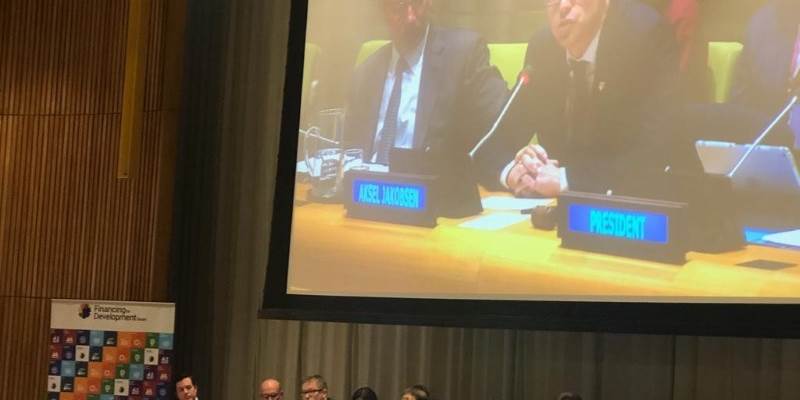Thank you very much, Chair. Giving an overview of the non-economic risks to economic progress in five minutes is probably the most challenging task I have ever been given. But I will have a go.
I will start by highlighting a key factor in this context that is abstract, but at the same time very real. And it is something you might not expect to see on a list of non-economic risks: trust. Trust is invaluable. It is one of several crucial elements for human progress, but sadly there are signs it is being depleted.
Why is trust an important point in a discussion about progress on the financing agenda? The answer is that trust is essential for every action. Every human interaction. Every transaction. Every productive relationship - formal or informal - has a basis in trust. If your trust in a business partner is faltering, will you sign that contract? If you can’t trust the people in power to govern well, why should you abide by their policies ? If you don’t trust your democracy, why vote? And if you don’t trust your country’s institutions, why should you respect them? Trust is abstract. It is personal. But it is also very real – and when trust is lacking, the whole of society is at risk.
There is plenty of hard research showing that where there is poverty there is also a lack of trust. The World Values Survey asks people this question: ‘Generally speaking, would you say that most people can be trusted, or do you need to be very careful in dealing with people?’ It has collected data in response to this question since the early 1980s.
The consistent differences in the level of trust between different countries is striking. This is an important fact because research shows that the level of trust is a robust determinant for economic growth. The economy is in essence a system of trust.
This is in fact - good news. Governments can influence the level of trust significantly and is the single most important actor in shaping the level of trust in a country. And there are a number of issues on the FFD agenda that – when resolved – will also improve trust.
To gain trust, we must fix the things that are seen as grossly unfair. A few of these come to mind immediately – all of them are high up on the Norwegian development policy agenda:
Illicit financial flows. Illicit financial flows seriously undermine trust. People must see that the international community is doing everything in its power to stop these flows and return stolen assets.
Corruption. Corruption cuts out as much as 5 % of global GDP, and every effort must be made to put an end to this scourge. There are few things that are as damaging to trust in society, than corruption.
Taxation. Ensuring fair taxation and good use of these revenues to deliver basic services to all is crucial. There must be a real dividend from tax collection - for everyone in society.
Trust is vital for well-functioning societies and for the wellbeing of the population. It also makes economic sense. As a resource for economic progress, trust is critical. The good news is that trust is a renewable resource.
Let me now end with another important issue: exclusion. Exclusion is expensive. It can cost you 7% of your GDP. There are around 1 billion people with disabilities in the world, and 800 million of them live in developing countries. More than half of the children with disabilities in low-income and lower-middle-income countries do not go to school at all.
Those who do go to school often face stigma, inaccessible infrastructure and school textbooks and materials that they are unable to fully utilise. Underlying these problems is a lack of data. Many children with disabilities are not registered at birth. This in turn prevents them from receiving key services and assistance from the government.
The ILO estimates that the cost of excluding people with disabilities can be as much as 7 % of GDP for low- and middle-income countries. This is a great concern for the Norwegian Government. Norway is therefore ramping up its efforts to strengthen disability inclusion and to deliver on the ‘leave no one behind’ agenda.
Including the excluded is a rock-solid long-term investment strategy. The economic dividends will be significant.
Thank you.
